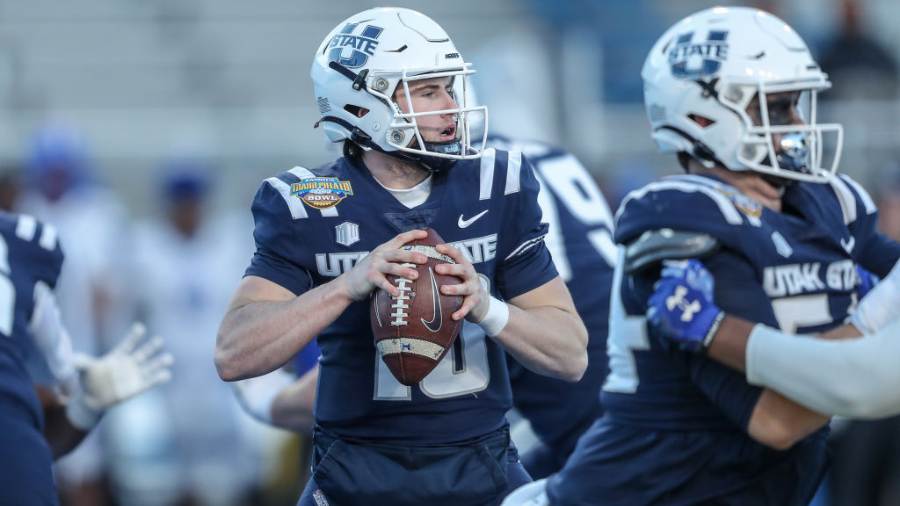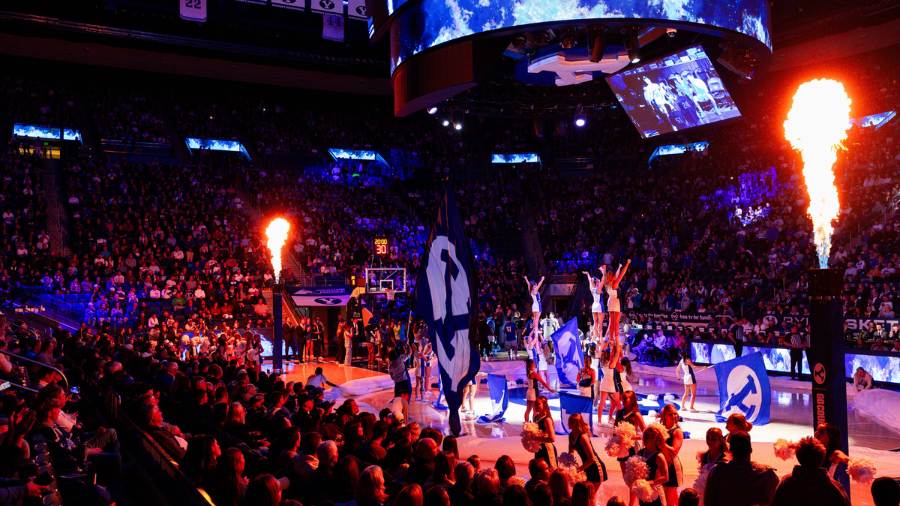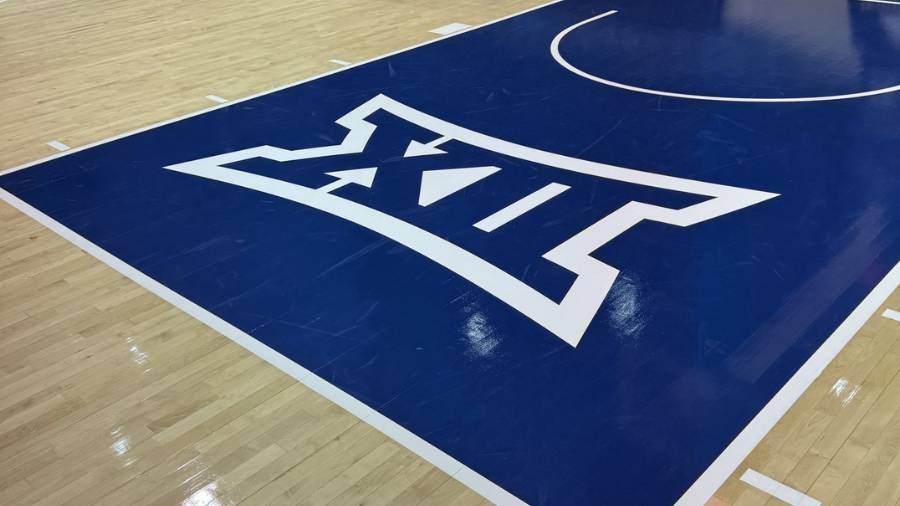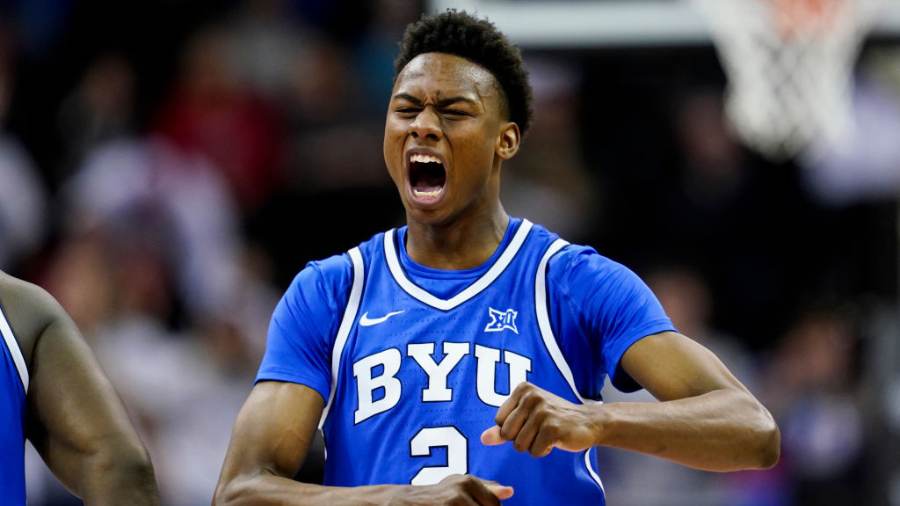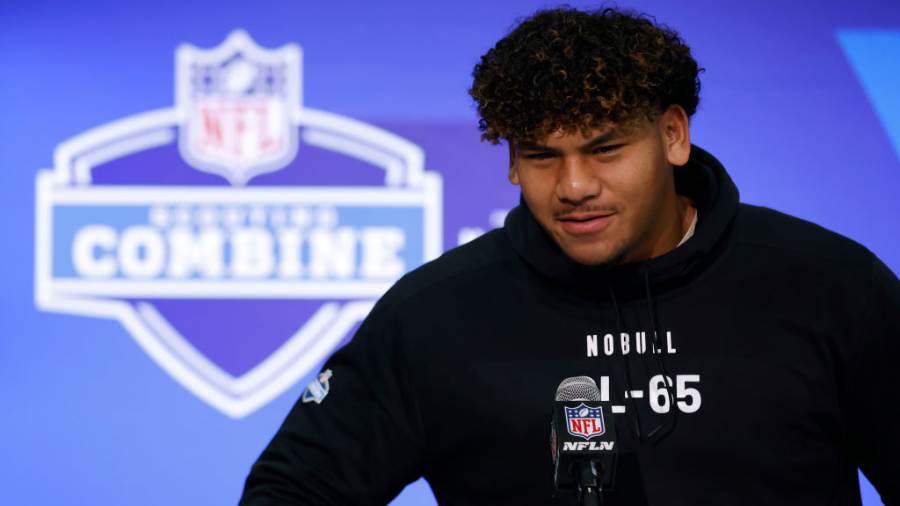Should BYU Consider A Move To The AAC?
Jun 24, 2019, 2:55 PM
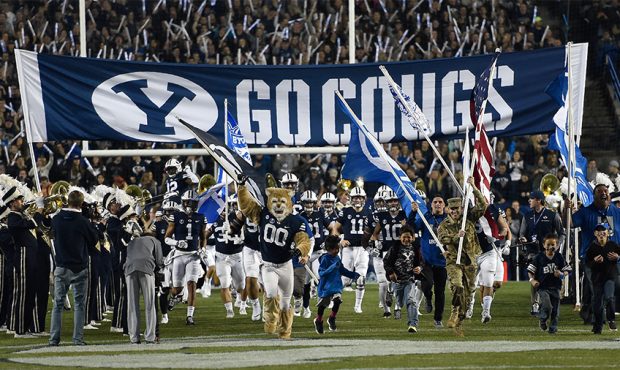
(Photo by Gene Sweeney Jr./Getty Images)
(Photo by Gene Sweeney Jr./Getty Images)
SALT LAKE CITY, Utah – College sports fans, brace yourselves. We might be experiencing a mini round of conference realignment in the near future. News surfaced over the weekend that the University of Connecticut was leaving the American Athletic Conference for the Big East Conference.
The Huskies, an original member of the Big East Conference, are leaving the AAC to revive their prestigious men’s and women’s basketball programs. The move leaves UConn’s football program needing a new home. According to reports, UConn football will not be allowed to stay in the AAC. That leaves the American Athletic Conference with only 11 members. Will the AAC make a call to BYU to bring the league back to 12 members? If the call happened, would BYU be interested in listening to what the AAC has to offer?
BYU is always going to be an institution that is brought up in any form of realignment these days because they have no conference affiliation for their football program. The Cougars are preparing for their ninth season as an FBS Independent and member of the West Coast Conference in all other sports.
The Cougars name is, of course, being tossed around as a possible replacement for UConn as a football-only member by various outlets.
But again, would BYU be interested?
Stadium’s Brett McMurphy reported on Monday that the AAC and BYU were very close before the AAC’s last television deal in 2013. According to the source in McMurphy’s report, “they had too many demands and wanted to be treated differently on TV rights than other members.”
The AAC entered a primary deal with ESPN and a sublicensing with CBS Sports.
Beginning in 2020, the AAC enters a new 12-year contract with ESPN that will bring the conference $1 billion over the next dozen years.
Of any conference in the “Group of Five,” the American Athletic Conference is the only one that would make sense for BYU to consider joining. The Cougars relationship with the Mountain West Conference schools was difficult, especially during the TV negotiations with Comcast in the creation of The mtn. Athletic Director Tom Holmoe said in 2018 that the relationship with MWC AD’s had a freezing period when the Cougars announced their intentions to leave the conference and now things are “thawing out.”
Holmoe and former BYU head coach Bronco Mendenhall expressed early in independence that the independent path was not sustainable. But now BYU’s AD has shown no signs of wavering from independence in recent years.
TV and Money
BYU is nearing a new contract with ESPN as an FBS independent beginning in 2020.
Like anything in college athletics, a change is going to come down to the money. But along with money, TV distribution rights are going to play a major role in BYU’s decision to bolt from independence to a Group of Five league.
According to the U.S. Department Equity in Athletics Data Analysis, BYU pulled in $79 million in revenue for their athletic department in the 2017 calendar year.
Only one school in the AAC had more revenue than BYU and that was UConn. The Huskies reported $83 million in revenue for 2017. Next closest was Cincinnati at $60 million, $19 million less than BYU.
BYU’s partnership with ESPN has never been lauded as a financial boom for the Cougars. Bronco Mendenhall said in 2014 the biggest value to the BYU-ESPN partnership was the network helping BYU get games as an independent. The first ESPN contract has been estimated to pay out BYU $800,000 to $1.2 million per home game, but those amounts have never been confirmed.
BYU is going to want options. Ideally, for BYU, the next TV deal with ESPN is a short-term one that pairs up with when Power Five TV contracts expiring in 2023 and 2024 and give the Cougars improved matchups and payouts in future bowl seasons.
BYU’s goal with independence back in 2011 was to use the Independence platform as a launching pad into a Power Five conference and to gain access and exposure.
Looking ahead
If another round of Power Five realignment happens, BYU is likely going to want to be in the mix to join one of those leagues. But if the Power Five leagues say thanks, but no thanks to BYU once again, the Cougars might have to strongly consider a new league home like the AAC.
Right now, there’s no need for BYU to rush into a new league that isn’t at the highest level of college athletics. The AAC has made significant strides and they are clearly head and shoulders above their Group of Five peers. But from a perception standpoint –perception is king in college sports– the Cougars would appear to be giving up on any hopes of Power Five affiliation by moving their entire athletic department or their football program into a Group of Five conference. What reception would a move like that receive from prominent boosters and donors at BYU?
The other element to all of this is BYU’s relationship with the West Coast Conference. BYU administrators love working with a conference that consists of faith-based institutions. BYU’s no Sunday play needs are taken care of and the WCC has embraced BYUtv as a television provider during the men’s and women’s basketball tournaments. Also, traveling costs for BYU’s Olympic sports teams to the west coast is a lot more affordable than say, Dallas or even further east, Orlando.
BYU needs to remain an FBS Independent for the time being. The scheduling aspect of independence has gone better than anyone could have imagined as the Cougars continue to line up home-and-home’s against Power Five programs. The money is significantly better than the Mountain West days but also would appear to be higher than programs in the Group of Five today.
Stay the path with independence for now and then reevaluate options when TV contracts are up in 2023 and 2024. A move to another conference prior to those Power Five TV deals expiring would be premature on BYU’s part and that is a move the Cougars can’t ultimately afford.
Mitch Harper is a BYU Insider for KSLsports.com and host of the Cougar Tracks Podcast and Cougar Sports Saturday (Saturday from 12-3 pm) on KSL Newsradio. Follow him on Twitter: @Mitch_Harper.

